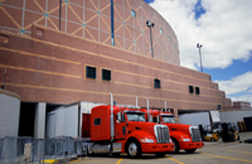California Labor Law: Yard Hostlers Not Getting Proper Breaks

“We’ve been looking at time records and breaks are always late - more than 50 percent of the time,” Szeto says.
Yard hostling typically involves retailers that have huge facilities, such as Target, Walmart, Costco, or Home Depot. These companies don’t keep their products stored in the back of their facilities; they keep them at other facilities at remote locations. The large retailers then hire trucking companies or logistics companies to transport the product from the remote locations to their stores.Yard hostlers are employed by trucking companies or logistics companies at these remote locations. Their job is to move the empty trailers around - the same trailers that later haul the product to the retail store - and dock those trailers so workers can fill the trailer with product before it is driven to the store.
“The large retailers pay the logistics companies and trucking companies by the number of trailers moved, so there’s an incentive to move as many trailers as possible,” Szeto says. “This means that yard hostlers are not given proper breaks until all their loads are done. Their lunch breaks are frequently late or interrupted because trailers need to be moved. It’s like a giant game of Tetris, moving the trailers around the yard and to the loading docks.”
There have not been a lot of lawsuits filed so far involving yard hostling, but that could certainly change. Employees have the right to uninterrupted breaks after a certain amount of hours worked. Employers have a duty to schedule breaks for employees, and ensure employees get those breaks.
“In some cases the company isn’t scheduling the breaks. They’re failing to provide breaks under California law.”
Employees in other industries have filed lawsuits alleging their employers failed to provide proper breaks. As more employees learn that their rights are being violated, more lawsuits involving yard hostling could be filed.
“We have one lawsuit currently pending,” Szeto says. “It's an area that’s ripe but hasn’t been saturated because people are not familiar with the job.”











No Comments